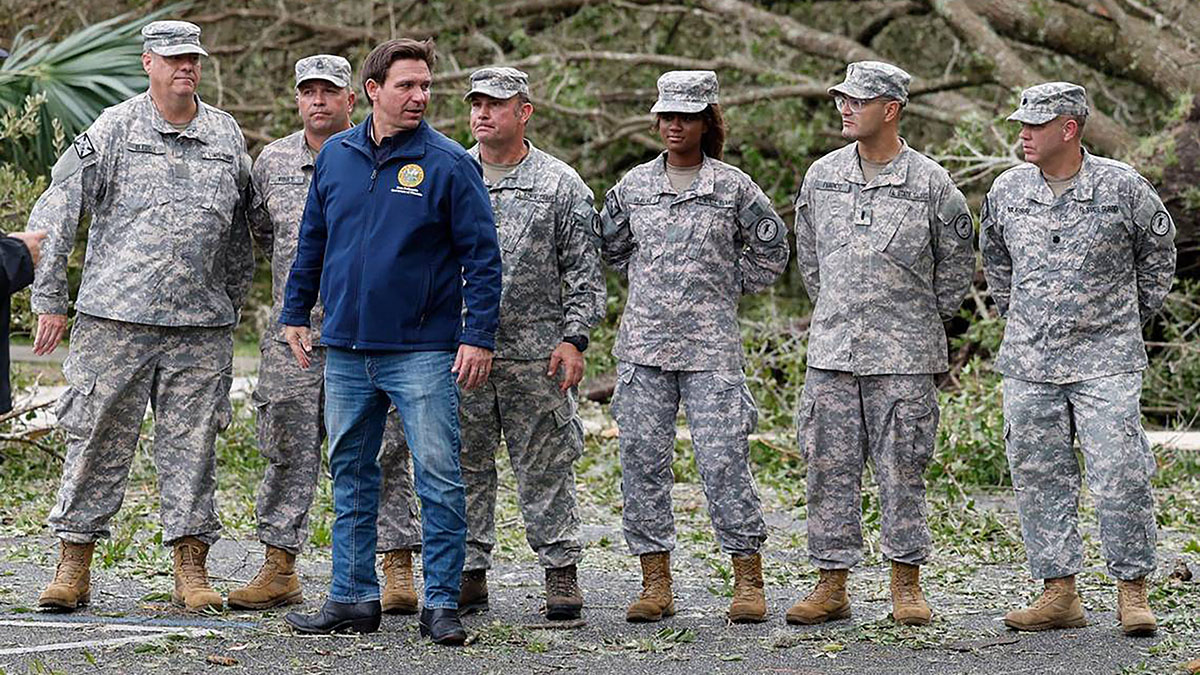On Manatee Appreciation Day, we look into why the animals are so crucial to Florida’s economy and environment.
Federal wildlife officials Monday released a proposal that would continue to classify Florida manatees as a threatened species, after environmentalists argued they should be reclassified as endangered.
The U.S. Fish and Wildlife Service is expected Tuesday to publish a proposed rule that details its reasons for keeping the threatened classification. Meanwhile, the proposed rule would change the classification from threatened to endangered for what are known as Antillean manatees, which are found in Puerto Rico.
Watch NBC6 free wherever you are
Florida manatees for decades were considered endangered species, which can receive more protections than threatened species. But in 2017, federal officials reclassified Florida manatees as threatened.
The new proposed rule said the “Florida manatee is a highly managed species for which many conservation initiatives have been and continue to be implemented to ameliorate threats, including efforts to improve water quality and restore seagrass.”
Get local news you need to know to start your day with NBC 6's News Headlines newsletter.
“While we anticipate that the threats will continue to act on the subspecies in the future, they are not currently affecting the subspecies such that it is in danger of extinction now,” the proposed rule said.
The Center for Biological Diversity, the Harvard Animal Law & Policy Clinic, Miami Waterkeeper, the Save the Manatee Club and Frank S. González García, an engineer, filed a petition in 2022 asking the federal agency to list manatees as endangered. That came after a record number of Florida manatee deaths in 2021, many of which were caused by starvation stemming from a lack of seagrass.
Ragan Whitlock, a Florida-based attorney with the Center for Biological Diversity, said in a statement Monday that it was “great news” the Antillean manatee would be classified as endangered. But Whitlock expressed disappointment that Florida manatees wouldn’t get the same protection.
“It’s clear that the ongoing unusual mortality event is endangering Florida’s manatees, and the agency’s findings completely failed to analyze the impacts of this existential threat,” Whitlock said. “When this species was prematurely downlisted to threatened in 2017, the Fish and Wildlife Service failed to consider the threat of a looming, massive mortality event. Now that it has come to fruition, the agency has inexplicably failed to consider how the starvation of thousands of manatees impacts their continued survival.”
In the past, Florida manatees and Antillean manatees had been grouped together, but the proposed rule would consider them separately.
“While the Antillean manatee may have some individual populations larger than some of the Florida manatee, the condition of the Antillean manatee also reflects declining trends and isolation of populations,” the proposed rule said. “Thus, after assessing the best scientific and commercial data available, we determine that the Antillean manatee is in danger of extinction throughout all of its range.”
Newly published data by the Florida Fish and Wildlife Conservation Commission showed that a reported 565 manatees died in 2024 in the state. That came after 1,100 deaths in the 2021 record year; 800 deaths in 2022; and 555 deaths in 2023.
At least part of the spike in deaths in 2021 and 2022 was related to a lack of seagrass in areas such as the Indian River Lagoon. Seagrass is a key food source for manatees, and the problems led state and federal wildlife officials to take a highly unusual step of feeding lettuce to manatees that congregated in warm water near a Florida Power & Light power plant in Brevard County.
Manatees also have long faced threats from issues such as getting hit by boats, red tide conditions and coastal development. The proposed rule, however, pointed to work such as restoring springs, which serve as an important refuge for manatees during the winter.
“Federal and state agencies have made the effort to mitigate the loss of warm-water habitat in Florida by providing regulatory measures to protect spring flows, supporting spring restoration efforts, and working cooperatively with industry to maintain important artificial warm-water sources while regional warm-water networks are established to support the manatee population,” the proposed rule said. “In some areas of Florida, local governments have also adopted protection measures, including local speed zones that provide benefits to manatees.”



